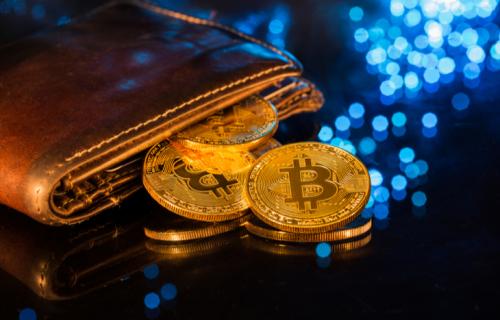Mark Tencaten | Learn about Crypto Wallets before Investing in Cryptocurrency

Cryptocurrency is a digital payment
system that employs cryptography to validate transactions and is maintained by
a network of computers. A peer-to-peer network known as a blockchain monitors
and organizes it, as well as serves as a secure database of transactions such
as selling, buying, and transferring. Cryptocurrencies, unlike actual money,
are decentralized, meaning they are not issued by government authorities
or other financial organizations.
To make
cryptocurrency, a dispersed computer network in a closed, web-based community
uses a set of intricate cryptographic algorithms. The result of the specialized
programs is cryptocurrency in the form of digital tokens. Individuals and organizations
can open new accounts — sometimes known as wallets — in the specialized
communities, and the tokens are only usable for exchange within such
communities.
Bitcoin is
one of the earliest — and unquestionably the most popular — cryptocurrencies with
a production limit. In 2008, a person recognized by the pseudonym Satoshi
Nakamoto created Bitcoin and the technology that allows it to be generated and
managed. Nakamoto set a limit of 21 million Bitcoins generated by his
exchange's distributed network of computers. Because of the limited supply, the
tokens are in high demand, and their value rises as a result.
When Bitcoin
was developed in 2009, it was promised to be the global digital currency
that could be sent anywhere in the world in seconds. On the other hand, Bitcoin
has characteristics that make it not simply a cryptocurrency but also a store
of wealth and a payment network.
Once you've
bought cryptocurrency, you cannot just fold a bitcoin and put it in your pocket.
You'll need to keep it safe in a wallet to avoid being hacked or stolen.
You can do so by creating your own crypto wallet.
Wallets can be
used to house digital valuables such as NFTs that you may want to sell, trade,
buy, or move to another wallet. They can make sending and receiving electronic
money to and from other people's accounts, crypto exchanges, and digital
markets more convenient. You can control the account because they're decentralized,
even if they're generated by any exchange platform. That means you're the only
one who knows what's in the wallet. You have to remember the passcode and
secret key phrase that unlocks it and manages the funds it contains.
There would
be no need for crypto wallets if people who buy cryptocurrencies merely meant
to hold them as speculative assets. Transactions and online brokerages that
convert cash to bitcoin would keep all of your digital currency in a bank
account for you. However, crypto wallets (also known as "blockchain
wallets"), which have been around since the initial days of Bitcoin, can
be used for a lot more than merely HODLing money with no costs.
While the
concept of a wallet is straightforward—a place to store and use your
cryptocurrency—choosing a crypto wallet can be a difficult task. Mark Tencaten,
a crypto expert, claims that there are over 150 different wallets to pick from.
Some only deal with a few well-known cryptocurrencies, while others allow you
to trade and store unique digital tokens.
If you're
interested in the NFT market, choose a wallet that can connect you to NFT marketplaces.
Some of these marketplaces use a specific blockchain, which may influence your
wallet selection. The majority of transactions are made with Ethereum, and many
NFT dealers utilize Metamask to buy, sell, store, and list NFTs for purchase.
"CryptoPunks" and "Bored Ape Yacht Club" are two of the
most popular NFTs.
For
Solanart, Mark Tencaten suggests that you should probably use a wallet
that is regularly used by Solana cryptocurrency, which is based on the Solana
blockchain and where NFTs like "Degenerate Ape Academy" are sold.
According to
Mark Tencaten, owner of NGS Group Limited, crypto wallets is a method
for people to take ownership of their currencies without relying on a third
party.
There are two types of crypto wallets: software wallets and hardware wallets.
Software
wallets are simple desktop programs or browser extensions that simplify
sending, receiving, and storing cryptocurrency. Hardware wallets are physical
devices that are plugged into a computer and perform a similar function.
Software
wallets are also referred to as "hot" wallets because the assets are
stored online. In hardware wallets, Private keys are kept offline or in cold
storage and are referred to as "cold" wallets.
Hardware
wallets are designed for security, whereas software wallets are designed for
convenience.
Post Your Ad Here
Comments